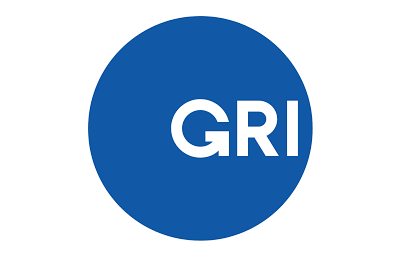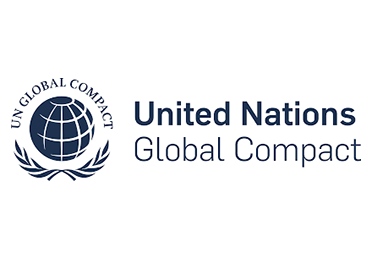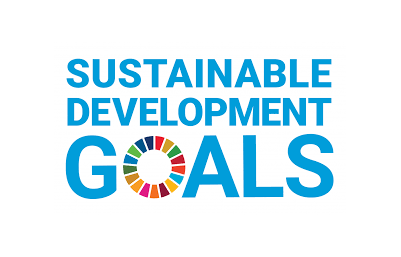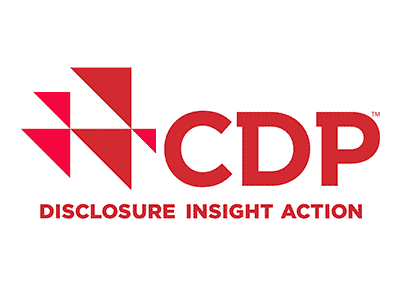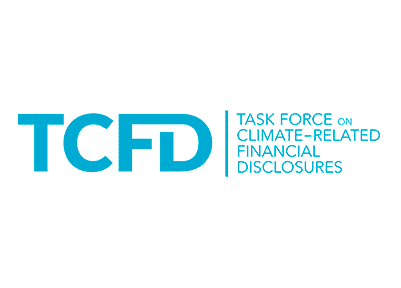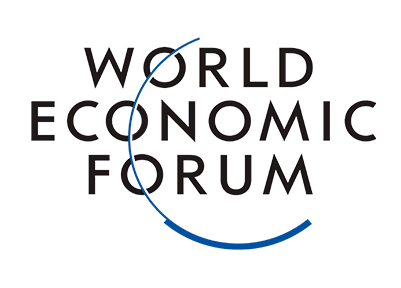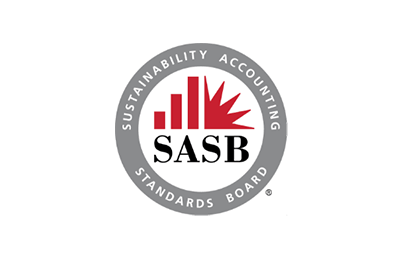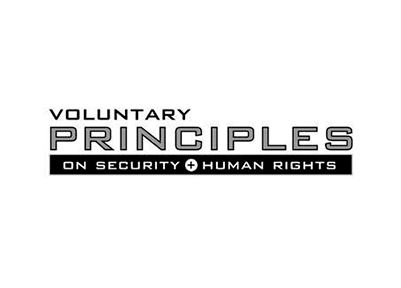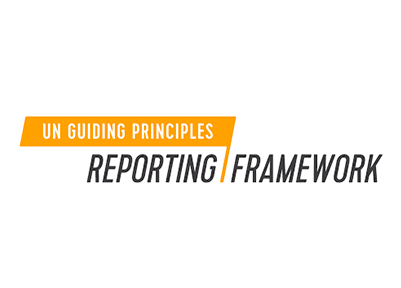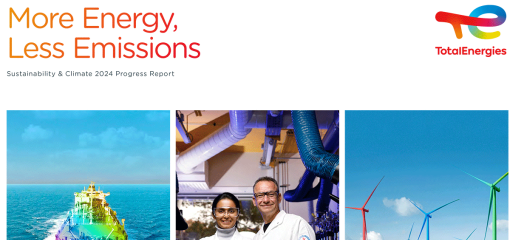Reporting standards

Reporting Standards
Reporting Standards
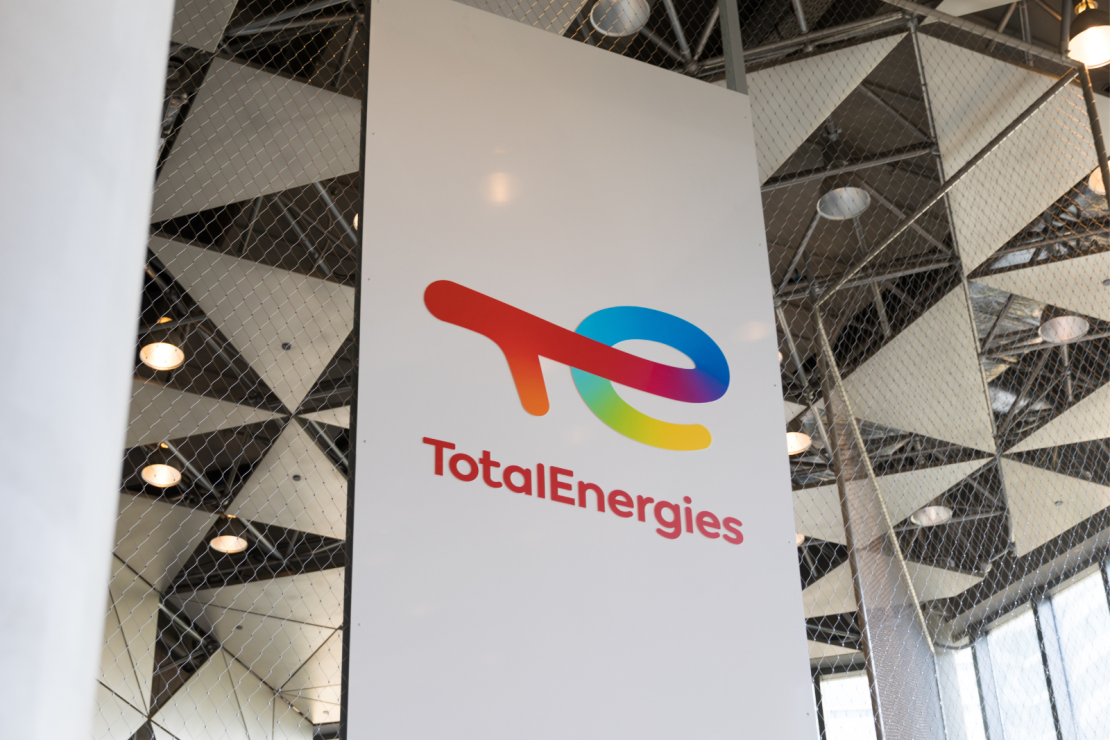
TotalEnergies believes that transparency is an essential principle of action in order to provide clear information to investors, the regulator and to the general public.
With the willingness to make performance indicators available to all its stakeholders, TotalEnergies provides additional information.
Global Reporting Initiative (GRI)
The Global Reporting Initiative (GRI) is an international, multi-stakeholder and independent non-profit organization that promotes economic, environmental and social sustainability. The GRI was established in 1997 in partnership with the United Nations’ Environment Programme (UNEP).
The organization has developed Sustainability Reporting Guidelines that strive to increase the transparency and accountability of economic, environmental, and social performance and provides all companies and organizations with a comprehensive sustainability reporting framework that is widely used around the world.
In 2017, TotalEnergies stopped using GRI G4 guidelines (used from reporting period 2014) and adopted the GRI Standards and continued to report in accordance with the Core level.
In 2021, GRI adopted a new framework to which TotalEnergies refers from reporting period 2023 and in particular:
- GRI 1: Foundation 2021
- GRI 2: General Disclosures 2021
- GRI 3: Material Topics 2021
- GRI 11: Oil and Gas Sector 2021
TotalEnergies’ GRI index table is based on various sources of information, all produced by the Company: 2022 Universal Registration Document (“URD 2022”), Sustainability & Climate 2023 Progress Report, the Company corporate website, etc.
TotalEnergies – GRI standards content index
- Reporting period: 1st January - 31st December 2022
Global Compact
The United Nations created the Global Compact in 2000 following a call by its Secretary-General urging businesses to play an active role in the globalization process.
It is grounded on a universal and voluntary framework of “Ten Principles” related to human rights, labour, the environment and the fight against corruption.
Our commitment
The Company upholds the Global Compact since 2002. It reiterates each year its commitment to the Global Compact’s Ten Principles [ancre vers les 10 principles plus bas]. This commitment is explicitly stated in the Company’s Code of conduct.
TotalEnergies' yearly Communication on Progress is made at the GC-Advanced level since 2012. In 2022, TotalEnergies participated in the “Early Adopter Programme” to publish its new Communication on Progress in accordance with the Global Compact questionnaire.
The Company is a member of the Global Compact France, and the teams actively contribute to the Human rights Club and the GC Advanced Club of the French network.
In 2018 and based on the new criteria set by the Global Compact, TotalEnergies was among the companies recognised as LEAD for its sustainability practices. TotalEnergies’ LEAD status was confirmed in 2019, 2020 and 2021.
See our 2021-2022 Communication on Progress
TotalEnergies’ page on the Global Compact website
Furthermore, TotalEnergies participates in theme-based action platforms within the Global Compact framework:
- Human Rights in Global Supply chain platform
- Sustainable Oceans business platform
- SDG 16 action platform for Peace, Justice and Strong Institutions
The Ten Principles
The Company’s actions to address its sustainability challenges
Sustainable Development Goals
In 2015, the United Nations and its member States adopted the 17 Sustainable Development Goals (SDGs), which define a framework for the years to 2030 for addressing the global issues of poverty, protection of the planet, peace and prosperity. On the strength of their financial resources and capacity for innovation, businesses are called to contribute in furthering that agenda as a means of collectively addressing the challenges of sustainable development.
The Company pledged in 2016 its support to contribute to the achievement of the SDGs and has designed its sustainability framework so as to make a genuinely significant contribution to that joint effort.
TotalEnergies’ approach to SDG reporting
TotalEnergies places sustainable development in all its dimensions at the heart of its strategy, its projects and operations in order to contribute to the well-being of the population. As part of its determination to strengthen its efforts in the segments in which it can act with most authority as an integrated multi-energy Company, TotalEnergies involves its employees in identifying the SDGs on which it can have the greatest impact, in connection with its ambition to reach carbon neutrality (net zero emissions) by 2050, together with society.
The Company has therefore built its sustainability approach on four areas of action and has identified three levels of impact:
- TotalEnergies’ core contributions through its mission: SDGs 7 - 8 - 9 - 13
- TotalEnergies’ direct contributions through its responsible business approach: SDGs 3 - 4 - 5 - 10 - 12 - 14 - 15 - 16
- TotalEnergies’ indirect contributions through its responsible business approach: SDGs 1 - 2 - 6 - 11
In addition, SDG 17 is cross-cutting and is considered as an enabler to deliver the Company’s sustainability strategy.
While SDGs are interconnected and respond to different challenges addressed by TotalEnergies, each SDG has been allocated to one of the four axes of our sustainability approach.
As a member of the Global Compact’s Reporting on the SDGs Action Platform, TotalEnergies based its reporting tables on the Analysis of the Goals and Targets published since 2017.
TotalEnergies – SDG standards content index
- Reporting period: 2021-2022
- Lexicon:
- URD 2021 – Universal Registration Document of TotalEnergies
- Sustainability & Climate 2022 Progress Report
- TotalEnergies website – pages on this site
Climate and sustainable energy
TotalEnergies’ core contributions through its mission
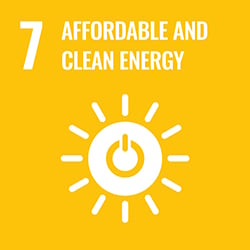
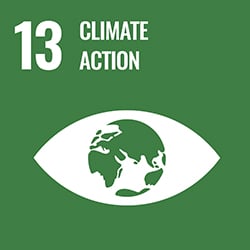
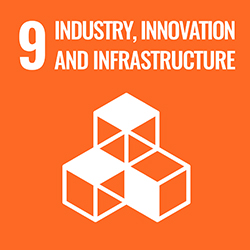
TotalEnergies’ indirect or local contributions
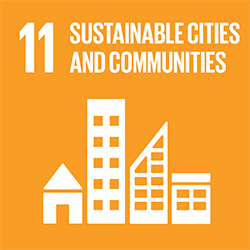
People's well-being
TotalEnergies’ core contributions through its mission
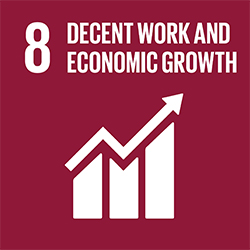
TotalEnergies’ direct contributions through its responsible business approach
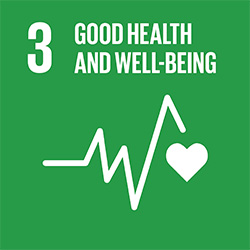
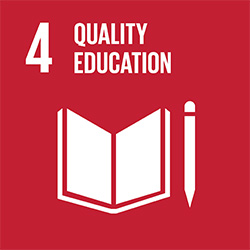
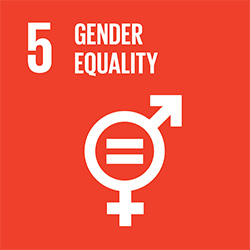
Care for the environment
TotalEnergies’ direct contributions through its responsible business approach
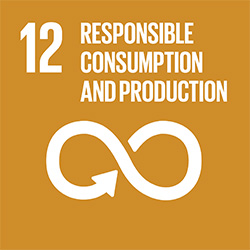
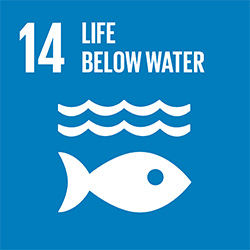
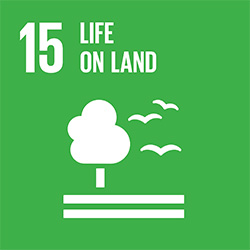
TotalEnergies’ indirect or local contributions
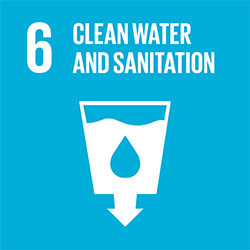
Creating value
for society
TotalEnergies’ direct contributions through its responsible business approach
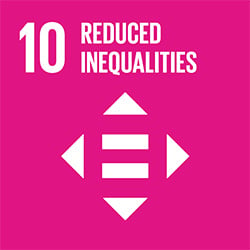
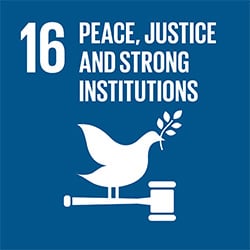
TotalEnergies’ indirect or local contributions
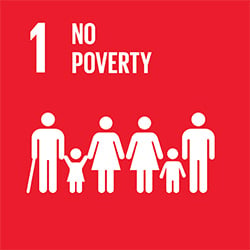
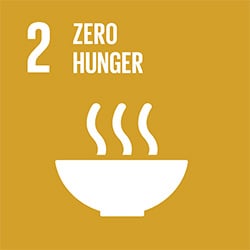
Cross-cutting
collective action

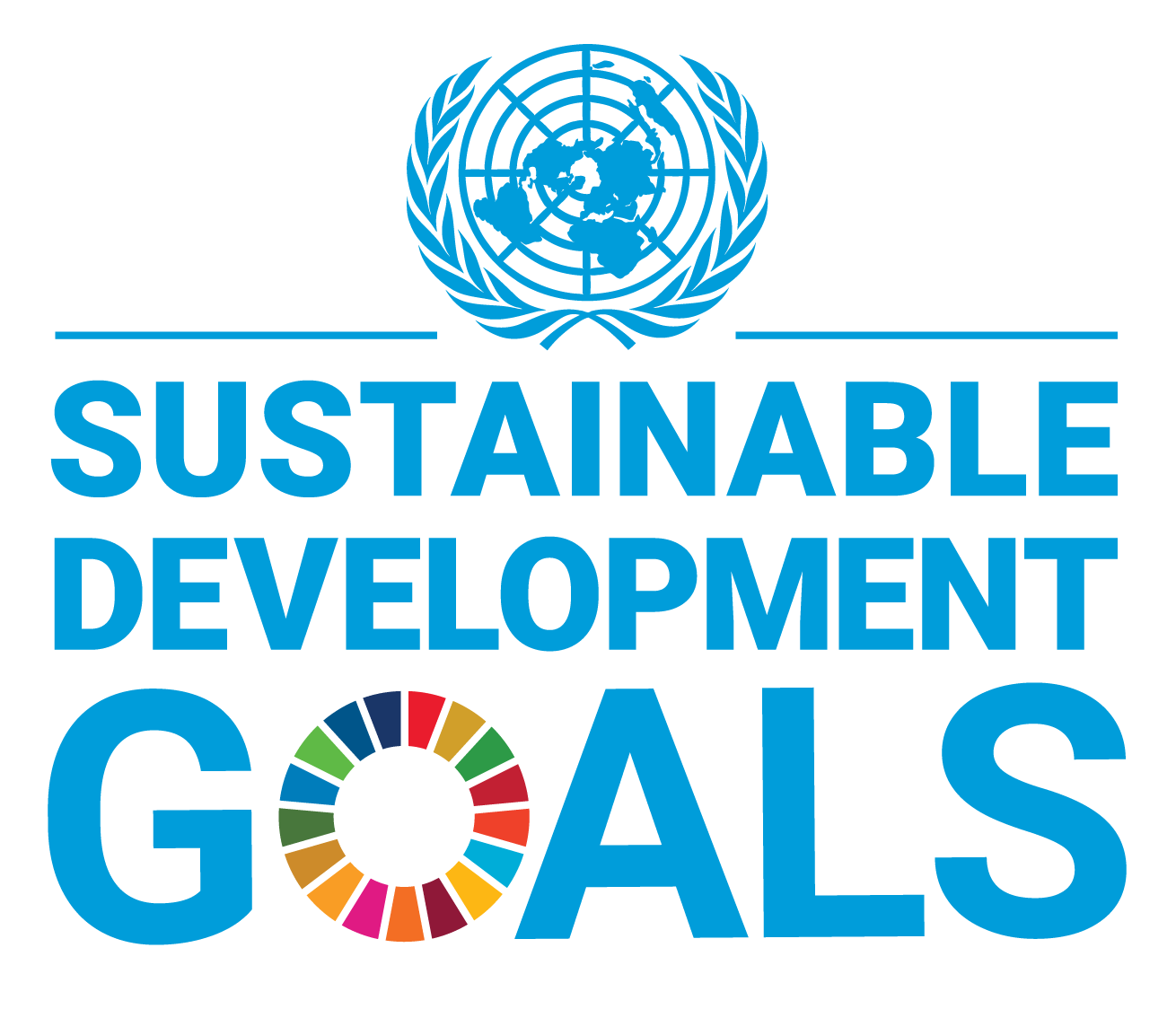
Our contribution to the Sustainable Development Goals
Click on each SDG below:
Climate and sustainable energy
TotalEnergies’ core contributions through its mission

SDG 7 Affordable and clean energy
7.1 Access to energy
In September 2021, TotalEnergies responded to the UN Energy initiative by establishing an Energy Compact in which we announce the concrete measures we are going to implement to promote access to clean and affordable energy for all by 2030 (SDG7). We estimate that, of the 100 GW of renewable electricity we will install by 2030, some 33 GW will be located in emerging or developing countries, providing sustainable energy to around 40 million people, some of whom will never have had decent access to energy.
URD 2021, 2.5.5.5 Access to energy, p.117
Sustainability & Climate 2022 Progress Report, p.2
TotalEnergies website, Access to energy > Energy is reinventing itself; Total is becoming TotalEnergies
7.2 Renewables energies development
TotalEnergies confirms its objective to invest in order to reach a gross power generation capacity from renewables of 35 GW in 2025, and intends to continue its development to become one of the top five producers of renewable electricity (wind and solar) in the world, with a gross capacity of 100 GW by 2030.
URD 2021, 1.3.3 Electricity > Becoming a world leader in renewable electricity by integrating the value chain from production to sales, p.14
URD 2021, 2.1.4.2 Power Generation from renewables, p.71
Sustainability & Climate 2022 Progress Report, p.9
7.2 Low carbon energies development
Natural gas, biogas and hydrogen
URD 2021, 5.4.2 Strategy > Biogas, p.290
URD 2021, 5.4.2 Strategy > Hydrogen, p.290
URD 2021, 5.4.2 Strategy > Natural Gas, Transition Fuel, p.289
Sustainability & Climate 2022 Progress Report, p.20
Biofuels
URD 2021, 2.4.1 Refining & Chemicals > Developing new ways to produce fuels and polymers, p.104
URD 202,1 5.4.2 Strategy > Biofuels, p.290
Sustainability & Climate 2022 Progress Report, p.41
Storage
URD 2021, 2.1.4.3 Electricity storage, p.75
Sustainability & Climate 2022 Progress Report, p.42
Mobility
URD 2021, 5.4.2 Strategy > Together with our customers - mobility, p.295
Sustainability & Climate 2022 Progress Report, p.40
7.3 Energy efficiency
The 2030 target for operated facilities worldwide is to improve the energy efficiency of operated facilities by 1% per year from 2010.
URD 2021, 5.4.4 Targets and metrics to measure climate-related risks and opportunities, p.300
CDP Climate Change 2021, C8 Energy, p.64-68
Sustainability & Climate 2022 Progress Report, Improving the efficiency of our facilities, p.32
URD 2021, 2.1.8 Energy efficiency services, p.77
7.A R&D and innovation
URD 2021, 1.7.2 R&D at the heart of our strategy, p.34
TotalEnergies Ventures website, Energy is reinventing itself, Total is becoming TotalEnergies
Sustainability & Climate 2022 Progress Report, R&D at the Forefront of our Transformation, p.23
7.B Supply modern and sustainable energy services in developing countries
TotalEnergies’ core contributions through its mission

SDG 9 Industry, innovation and infrastructure
9.1 / 9.A Infrastructure investment – reliable energy
TotalEnergies’ policy is guided by two axes: discipline and selectivity in oil and gas investments, on the one hand, and strong investment growth in renewables & electricity, on the other hand. Between 2022 and 2025, TotalEnergies projects annual net investment totalling between $13 billion and $16 billion per year.
URD 2021, 1.6 Our investment policy, p.30
9.1 Infrastructure investment – sustainable mobility
TotalEnergies is acting on the deployment of 150,000 charge points worldwide by 2025. And 300 service stations on motorways and major roads and 600 urban service stations with high power chargers (HPC) by 2030 to support e-mobility travel in Europe. This works out to one HPC every 150 km, for optimal coverage on long-distance trips.
URD 2021, 2.5.5.1 Europe > New energies, p.113
URD 2021, 5.4.2 Strategy > Together with our customers- mobility, p.295
Sustainability & Climate 2022 Progress Report, Mobility: Together With our Customers, p.40
9.2 Direct Economic Value
The Company maintains a comprehensive, integrated policy, rooted in dialogue with communities and public and private stakeholders, for supporting local growth and in-country value. It forges synergies among the various sources of value generation for host countries (employment, subcontracting, infrastructure, support for local industry, socioeconomic development projects, education, energy access, etc.) by capitalizing on the Company’s industrial expertise. TotalEnergies intends to maintain this approach over the long term to ensure that its presence in these regions and the major projects it develops create shared prosperity.
URD 2021, 1.1.3 Our business model, p.10
URD 2021, 1.10 Our financial performance, p.46
URD 2021, 5.9.1 Fostering the economic development of host regions, p.343
Sustainability & Climate 2022 Progress Report, Sustainably Committing to Local Communities, p.70
9.4 Infrastructure adaptation
Sustainability & Climate 2022 Progress Report, Sustainably Committing to Local Communities, p.70
9.5 R&D and innovation
The creation of OneTech on September 1, 2021 is the signal of an unprecedented mobilization of human energy to meet TotalEnergies’ new challenges. The new branch OneTech brings together the Company’s technical and scientific expertise. There are 3,400 engineers, technicians, and researchers to meet these new challenges.
URD 2021, 1.7.1 OneTech, engine of the transformation, p.33
URD 2021, 1.7.2 R&D at the heart of our strategy, p.34
Sustainability & Climate 2022 Progress Report, R&D at the Forefront of our Transformation, p.23
TotalEnergies’ core contributions through its mission

SDG 13 Climate action
13.1 Risks and opportunities linked to climate change
URD 2021, 5.4.1 Governance, p.286
URD 2021, 5.4.2 Strategy > Identification of climate-related risks and opportunities, p.287
URD 2021, 5.4.3 Risk management, p.298
CDP Climate Change 2021, C1 Governance, p.5-10
CDP Climate Change 2021, C2 Risks and opportunities, p.10-27
13.1 Strategy linked to climate change
URD 2021, 5.4.2 Strategy, p.287
Sustainability & Climate 2022 Progress Report, Transforming to reinvent energy, p. 9
CDP Climate Change 2021, C3 Business strategy, p.28-35
13.1 Curtailing emissions
The Company has set itself the ambition to achieve by 2050 or earlier carbon neutrality (net zero emissions) for indirect GHG emissions related to its customers’ use of energy products (Scope 3), together with society. This axis requires TotalEnergies to work actively with its customers, since this means they will reduce their direct emissions (Scope 1+2) that correspond to TotalEnergies’ indirect Scope 3 emissions.
URD 2021, 5.4.4 Targets and metrics to measure climate-related risks and opportunities, p.300
CDP Climate Change 2021, C4 Targets and performance > Emissions reduction initiatives, p.44-45
13.1 Contribution to carbon storage
In addition to taking action to prevent and reduce greenhouse gas emissions, it will be necessary to offset residual carbon emissions if TotalEnergies is to achieve net zero emissions together with society. For that reason, it is investing in natural carbon sinks, such as forests, regenerative agriculture and wetlands.
Sustainability & Climate 2022 Progress Report, Capturing and Storing Carbon at our Facilities, p. 36
13.1 Targets to monitor climate performance
To support its ambition of carbon neutrality (zero net emission) at a global scale (Scope 1+2+3), together with society, TotalEnergies has set targets and introduced a number of indicators to steer its performance.
URD 2021, 5.4.4 Targets and metrics to measure climate-related risks and opportunities, p.300
CDP Climate Change 2021, C4 Targets and performance, p.36-50
CDP Climate Change 2021, C6 Emissions data, p.51-57
CDP Climate Change 2021, C7 Emissions breakdown, p.57-64
TotalEnergies website, Climate indicators
13.2 Climate advocacy
Carbon pricing
For more than a decade, TotalEnergies has advocated the adoption of carbon pricing, and applies an internal carbon price when evaluating its own projects.
Sustainability & Climate 2022 Progress Report, Support for Carbon Pricing, p. 44
CDP Climate Change 2021, C11 Carbon pricing, p.79-81
Trade associations
CDP Climate Change 2021, C12 Engagement, p.82-90
TotalEnergies website, Industry and business associations membership
13.3 Awareness and collective action on climate
Sector initiatives and international framework
TotalEnergies actively participates in the debate on climate issues, thanks especially to its long-term partnerships with university chairs, such as the Climate Economics Chair at Paris-Dauphine University, the climate change research program of Massachusetts Institute of Technology (MIT), and Toulouse School of Economics. TotalEnergies also offers training and makes presentations at several universities, thereby taking part in the debate.
URD 2021, 5.4.2 Strategy > Support for carbon pricing, p.297
URD 2021, 5.9.3 Engaging in citizenship initiatives: the TotalEnergies Foundation program, p.348-349
Sustainability & Climate 2022 Progress Report, Mobilization of industry organizations, p. 43
TotalEnergies’ indirect or local contributions

SDG 11 Sustainable cities and communities
11.1 Access to basic services
URD 2021, 5.9.2.2 Examples of management of negative impacts linked to operational activities, p.346
11.2 Sustainable mobility
The second priority of the TotalEnergies Foundation program is to ensure safer mobility. Its actions include educating young people by means of local awareness raising, training and advocacy efforts, as well as participation in and support for the initiatives of international organizations. These actions took place in Argentina, Cameroon, Egypt, Fiji, France, India, Kenya, Morocco, Mauritania, Niger, Romania, Senegal, Taiwan, Tanzania, Thailand and Togo.
URD 2021, 5.9.3.2 Four areas of action > Road safety, p.348
11.4 Culture heritage
In 2021, the TotalEnergies corporate Foundation supported 11 restoration projects providing employment for young people in France through its partnership with the Fondation du Patrimoine (Heritage Foundation).
URD 2021, 5.9.3.2 Four areas of action > Dialogue on culture and heritage, p.349
11.4 Natural heritage
In accordance with the Company's new biodiversity ambition, all new investment projects must also meet the "zero net deforestation criterion”. TotalEnergies is committed to refraining from conducting exploration in the area of natural sites listed on the UNESCO World Heritage List or under sea ice in the Arctic. On the contrary, TotalEnergies deployed 8 biodiversity action plans for projects located in protected areas and 5 biodiversity audits carried out on sites of environmental importance.
URD 2021, 5.5.1 General policy and environmental targets, p.309
Protecting Biodiversity Commitments and Actions
Biodiversity: our Ambition & Commitments
Sustainability & Climate 2022 Progress Report, p.60, 61 and 65
11.6 Emissions
The Company’s operations generate emissions into the atmosphere from combustion plants and the various conversion processes. The Company set itself targets for the reduction in sulphur dioxide (SO2): decrease sulphur dioxide (SO2) emissions into the air by 75% between 2015 and 2030. Until now, the Company has reduced 64% reduction of sulphur dioxide (SO2) emissions into the air, excluding COVID-19 and conjunctural effects.
URD 2021, 3.6.8.3 Environment, p.164
URD 2021, 5.5.1 General policy and environmental targets > Our environmental targets, p.309
URD 2021, 5.5.3 Limiting the environmental footprint of the Company activities, p.311
CDP Climate Change 2021, C9 Additional metrics, p.69-70
Sustainability & Climate 2022 Progress Report, Environmental Performance: our Progress in 2021, p.65
Sustainability & Climate 2022 Progress Report, Environmental Performance Indicators, p.79
Click on each SDG below:
Care for the environment
TotalEnergies’ direct contributions through its responsible business approach

SDG 12 Responsible consumption and production
12.2 Resources efficiency
Air and water protection
The Company’s operations generate emissions into the atmosphere from combustion plants and the various conversion processes and discharges of wastewater. In addition to complying with applicable legislation, TotalEnergies has drawn up rules and guidelines that the Company’s subsidiaries can use to limit the quantities discharged.
Sustainable freshwater use
The Company’s activities, mainly those of Refining & Chemicals, and to a lesser extent those of the Exploration & Production and the Integrated Gas, Renewables & Power segments, may potentially have an impact on, as well as be dependent on, water resources, particularly when the activity concerned is located in a water stress area.
Sustainable soil use
TotalEnergies limits the use of land to the areas it needs to safely carry out its operations on its facilities.
CDP Water Security Questionnaire 2021
Circular Economy
TotalEnergies joined the Platform for Accelerating the Circular Economy (PACE) in 2022. This initiative launched by the World Economic Forum and now hosted by the World Resources Institute aims to speed the transition to a more circular economy.
Sustainability & Climate 2022 Progress Report, Our performance indicators > Circular Economy, p.79
URD 2021, 5.5.5 Promoting the circular economy, p.314-316
TotalEnergies website, Environment > Promoting the circular economy
Reduction of energy consumption
URD 2021, Objectives and indicators related to climate change, p.172-174
Reductions in energy requirements of products and services
URD 2021, Objectives and indicators related to climate change, p.172-174
URD 2021, 5.4.4 Targets and metrics to measure climate-related risks and opportunities, p.301-302
URD 2021, 5.11.4 Details of certain indicators > Life cycle Carbon intensity, p.357-358
12.4 Environmental policy & commitments
TotalEnergies strives to control its energy consumption, its emissions in natural environments (water, air, soil), its residual waste production, its use of natural resources and its impact on biodiversity.
TotalEnergies’ environmental targets:
– Have the environment management systems of the sites important for the environment certified according to the ISO14001 standard
Air New Target
– Reduce emissions of sulphur dioxide (SO2) into the air by 75% between 2015 and 2030, a target that amounts to not exceeding 15 kt emitted in 2030
Water New Target
– Reduce the freshwater withdrawal in water stress area by 20% between 2021 and 2030
– Limit the hydrocarbon content of continuous aqueous discharges to less than 30 mg/l for offshore sites and to less than 1 mg/l for onshore sites by 2030
Waste New Target
– Valorize more than 70% of the waste produced by sites operated by the Company's subsidiaries by 2030
Biodiversity Commitments
– Implement a net zero deforestation policy in new projects on new sites approved from 2022 onwards
– Refrain from conducting oil and gas exploration or production operations in the area of natural sites listed on the UNESCO World Heritage List
– No oil and gas exploration or production activity around natural sites listed on the UNESCO World Heritage List
– Refrain from conducting exploration in oil fields under sea ice in the Arctic
– Launch action plans in favour of biodiversity for projects located in protected areas
URD 2021, 5.5.5 Promoting the circular economy > Waste prevention and management, p.315
URD 2021, 5.5.1 General policy and environmental targets, p.308 and 309
URD 2021, p.113, 297, 316, 342, 352, 354
Sustainability & Climate 2022 Progress Report, p.44, 57, 60, 64
TotalEnergies website, Industry and business associations membership
12.4 Accidental pollutions prevention
To prevent the occurrence of a major industrial accident such as an explosion, fire, leakage of hazardous products or mass leakage that might cause death, physical injury, large-scale pollution or pollution at an environmentally sensitive site, or important damage to property, TotalEnergies implements suitable risk management policies and measures which apply to the operated activities.
URD 2021, 5.3.1 Preventing the occurrence of major industrial accidents, p.280 and 281
URD 2021, 5.5.2 Preventing risks of accidental pollution, p.310
TotalEnergies website, Health and safety indicators
TotalEnergies website, Environmental indicators
12.5 Circular economy
TotalEnergies ensures that the environmental impacts of all its operations are managed according to the Avoid - Reduce - Compensate approach, thereby helping to preserve the environment, biodiversity and freshwater resources. To this end, TotalEnergies promotes the circular economy. The Company’s progress targets regarding circular economy for 2030:
– Produce more than 5 TWh/year of biomethane in 2030
– Produce in a sustainable way 5 Mt/year of biofuels in 2030
– Produce 30% of recycled or biopolymers by 2030, i.e., 1 Mt/year
– Recover more than 70% of the waste from the sites operated by the Company's subsidiaries by 2030
URD 2021, 1.3.6 Promoting circular management of resources, p.16-17
URD 2021, 2.1.3 Biogas and hydrogen, p.70
URD 2021, 5.5.5 Promoting the circular economy > Waste prevention and management, p.314-316
TotalEnergies website, Challenges identification
TotalEnergies website, Environment > Promoting the circular economy
TotalEnergies website, Reporting scopes and methodology
12.6 Sustainability reporting
Non-financial performance disclosure
Chapter 5 of this Universal Registration Document constitutes the consolidated statement of non-financial performance as per Articles L. 22-10-36 and L. 225-102-1 of the French Commercial Code and discloses how the Corporation and the entities included in the scope of consolidation, in accordance with Article L. 233-16 of the French Commercial Code, take into account the social and environmental consequences of their activities, as well as the effects of those activities with regard to respect for human rights and fighting corruption and tax evasion.
Pursuant to the aforementioned Articles, this statement also includes information about the impact on climate change of the Corporation’s activity and the use of the goods and services that it produces; its societal commitments in order to promote sustainable development and the circular economy; the collective agreements in place within the Corporation and their impact on the Corporation’s financial performance as well as on employees’ working conditions; actions aimed at fighting discrimination and promoting diversity; and the measures taken on behalf of people with disabilities.
URD 2021, 5 Non-financial performance, p.272
Transparency, a principle of action
Pending the adoption of an international, standardized non-financial reporting framework, TotalEnergies ensures it is accountable for its performance on the basis of the various commonly used ESG reporting frameworks. As such, TotalEnergies refers to the Global Reporting Initiative (GRI) standards and those of the Sustainability Accounting Standards Board (SASB), for which detailed tables of correspondence are available on its website. TotalEnergies’ reporting includes the World Economic Forum’s core indicators. Furthermore, the Company follows the recommendations of the Task Force on Climate-related Financial Disclosures (TCFD) for its climate reporting. TotalEnergies provides additional information on its website in pages specifically dedicated to its sustainability development approach.
URD 2021, 5.9.3 Engaging in citizenship initiatives: the TotalEnergies Foundation program, p.348-349
Code of Conduct, External Resources, p.39-42
TotalEnergies website, Our sustainability approach
TotalEnergies website, Reporting standards
TotalEnergies website, Our commitments and progress indicators
TotalEnergies website, The main ESG ratings
Protecting Biodiversity Commitments and Actions, p.10, 11, 24, 28, 29, 30
12.7 Sustainable procurement practices
The Company expects its suppliers to adhere to the Fundamental principles of purchasing which derive from its own code of conduct.
URD 2021, 5.10 Contractors and suppliers, p.349-354
TotalEnergies website, Challenges identification
TotalEnergies website, Supply chain
Respect Human rights at work: Practical Guide for Suppliers
Fundamental principles of purchasing
12.8 Products information and labelling
TotalEnergies has also defined the minimum requirements to be observed in order to market its petroleum or chemical products worldwide with the goal of reducing potential risks to consumer health and the environment. These include the identification and assessment of the risks inherent to these products and their use, as well as providing information to consumers.
URD 2021, 2.5.6 Products and services development, p.117
URD 2021, 5.3.5 Limiting risks for the health and safety of consumers, p.285
TotalEnergies’ direct contributions through its responsible business approach

SDG 14 Life below water
14.1 Marine pollution from operations
TotalEnergies strives to control its energy consumption, its emissions in natural environments (water, air, soil), its residual waste production, its use of natural resources and its impact on biodiversity.
Water New targets:
– Limit the hydrocarbon content of continuous aqueous discharges to less than 30 mg/l for offshore sites
– Limit the hydrocarbon content of continuous aqueous discharges to less than 1 mg/l for onshore sites by 2030
URD 2021, 3.6.8.1 Human Rights > Example: Mozambique LNG Project, p.159
URD 2021, 5.5.1 General policy and environmental targets, p.308-309
URD 2021, 5.5.2 Preventing risks of accidental pollution, p.310
Sustainability & Climate 2022 Progress Report, Preserving Biodiversity > Oceans, p.61
CDP Water 2021, W3 Procedures, p.24-44
14.1 Marine pollution from marine transport
For its sea and river shipment requirements, TotalEnergies only charters ships and barges that meet the highest international standards. To manage a major accidental spill efficiently, TotalEnergies has implemented a global crisis management system. Moreover, 100% of sites whose risk analysis identified at least one risk of major accidental pollution to surface water were the subject of an operational oil spill contingency plan.
URD 2021, 1.4.2.2 Reducing scope 3 emissions, together with society, p.24
URD 2021, 2.4.2.2 Shipping, p.107-108
URD 2021, 5.5.2 Preventing risks of accidental pollution, p.310
Sustainability & Climate 2022 Progress Report, Mobility: Together with our customers, p.42
14.1 Marine pollution from plastics
URD 2021, 5.5.5 Promoting the circular economy, p.314-315
CDP Water 2021, W7 Business Strategy and W8 Targets, p.60
CDP Water 2021, W7 Business Strategy and W8 Targets, p.62
14.2 Marine and coastal ecosystems preservation
TotalEnergies is aware of the impacts of the water withdrawals and is committed to monitoring water withdrawals to identify priority sensitive sites and then carry out a risk assessment.
Water New target:
– Reduce the freshwater withdrawal in water stress area by 20% between 2021 and 2030
TotalEnergies Foundation website, Climate, Coastal Areas and Oceans
URD 2021, 3.6.8.3 Environment > Quality of water discharged, p.165
CDP Water Security Questionnaire 2021, W1 Current state, p. 9, 10, 14, 18 to 22
14.3 Reduce impacts on ocean
Direct (Scope 1, 2 and 3) GHG emissions
URD 2021, 3.6.8.4 Climate > Objectives and indicators related to climate change > Scope 2, p.173
URD 2021, 5.4.4 Targets and metrics to measure climate-related risks and opportunities, p.300-302
URD 2021, 11.1 World Economic Forum Core ESG metrics > Greenhouse Gas (GHG) emissions, p.608
Sustainability & Climate 2022 Progress Report, p.77 and 80
CDP Climate Change 2021, C7 Emissions, p.50-60
CDP Climate Change 2021, C7 Emissions Breakdown > Scope 2, p.61-64
Reduction of GHG emissions
URD 2021, 5.4.4 Targets and metrics to measure climate-related risks and opportunities, p.300-303
URD 2021, 11.2 SASB Report > EM-EP110a.3, p.617
CDP Climate Change 2021, C4 Targets and performance, p.36-39
CDP Climate Change 2021, C4 Targets and performance, p.44-49
CDP Climate Change 2021, C5 Emissions methodology, p.50
Sustainability & Climate 2022 Progress Report, Progress Report, p.31-44
14.A Contribute to scientific knowledge
The TotalEnergies Foundation program supports the Polar Pod expedition which aims to study the Antarctic circumpolar current to gain a better understanding of air-ocean exchanges, to validate satellite measurements and to observe biodiversity and the impact of human activities in the Southern zone. In addition, Oxford University, TotalEnergies and Equinor launched a collaboration program in 2018 with the aim of developing a tool for screening of marine biodiversity sensitivities. The tool has now been finalized and is available online for industry, the public sector and NGOs.
Biodiversity: our Ambition & Commitments
Protecting Biodiversity Commitments and Actions
14.B Action plans for communities
In Mozambique, the identification of impacts related to land and livelihoods has led to a multi-year action plan (2018-2022) for local populations: construction of housing, programs to develop agricultural and fishing activities, and relocation of burial sites. The subsidiary also supported programs for food aid, access to housing and aid for vulnerable people.
14.C Implementing international law as reflected in UNCLOS and paragraph 158 of The Future We Want
TotalEnergies respects exclusion zones and good environmental practices. TotalEnergies will not explore for oil in the Arctic Sea.
URD 2021, 1.3.5 Petroleum products: adapting to demand, p.16
TotalEnergies’ direct contributions through its responsible business approach

SDG 15 Life on land
15.1 Ecosystems preservation
Aware of the need to protect the nature on which humanity depends, the Company ensures that biodiversity is taken into account in all its operations. In 2020, TotalEnergies has set itself a new biodiversity ambition based on four core axes:
(1) voluntary exclusion zones,
(2) biodiversity management in projects,
(3) biodiversity management at existing sites and sites ceasing their activities,
(4) promoting biodiversity.
A biodiversity action plan (BAP) is developed for any new site located in an area of interest for biodiversity, that is IUCN (International Union for Conservation of Nature) Protected areas I to IV or Ramsar areas. In addition, for each new project located in an IUCN Protected area I or II or a Ramsar area, the Company commits to implement measures to produce a net positive impact (gain) on biodiversity.
URD 2021, 11.1 World Economic Forum Core ESG metrics > Land use and ecological sensitivity, p.609
URD 2021, 11.1 World Economic Forum Core ESG metrics > Biodiversity Impacts, p.620-621
Protecting Biodiversity Commitments and Actions
Sustainability & Climate 2022 Progress Report, p.60, 61 and 65
Sustainability & Climate 2022 Progress Report, p.38, 60 and 65
15.2 Net zero deforestation policy
The Company is committed to implementing a net zero deforestation policy in new projects on new sites approved from 2022 onwards.
URD 2021, 3.6 Promoting circular management of resources, p.16
URD 2021, 1.5 Our sustainability ambitions and targets > Biodiversity, p.29
URD 2021, 2.5.6 Products and services development, p.117
URD 2021, 5.4.2 Strategy > Offsetting residual emissions with natural carbon sinks, p.295
15.3 Depollution policy
The risks of soil pollution related to TotalEnergies’ operations come mainly from accidental spills and waste storage. TotalEnergies has drawn up a guide that the Subsidiaries can use to prevent and contain this pollution. In addition, TotalEnergies has created a soil and groundwater depollution policy based on the assessment and management of the risks that such pollution may incur.
URD 2021, 5.4.2 Strategy > Offsetting residual emissions with natural carbon sinks, p.295
15.5 Biodiversity-rich areas
TotalEnergies is creating biodiversity-rich areas (habitats for rare species, biodiversity sanctuaries, etc.) as a rehabilitation option for sites that have ceased their activity. Initial projects include the creation of a habitat for reptiles on the banks of the Garonne River and measures to conserve protected bird and amphibian species in Oberhoffen-sur-Moder, France.
15.6 Revenues
The model for managing areas must be integrated and shared with the local population. Within this framework, operations may comprise a variety of techniques (conservation, afforestation-reforestation, agroforestry, agricultural transition, blue carbon, etc.) and appropriate types of contracts (purchase contract, sustainable financing mechanism, impact funds, financed project, etc.). The goal is to combine and balance the value of agricultural and forestry revenues with the value of co-benefits for the population, soil, biodiversity, and the water cycle and that of carbon credits.
URD 2021, 3.6.8.4 Climate > Offsetting residual emissions with natural carbon sinks, p.172
15.9 Biodiversity ambition
In 2020, TotalEnergies set a new biodiversity ambition on the occasion of preparing for the United Nations’ global biodiversity plan, which aims to protect global biodiversity and updates its public commitments concerning biodiversity. The Company’s activities also incur risks for the environment, for which TotalEnergies has developed a structured management policy.
15.B Reforestation
In March 2021, TotalEnergies and Forêt Ressources Management have signed a partnership agreement with the Republic of the Congo to plant a 40,000-hectare forest on the Batéké Plateaux. The new forest is expected to create a carbon sink to sequester more than an estimated 10 million tons of CO2 over 20 years. The tree planting operations of the BACaSi project (Batéké Carbon Sink) started in November 2021
TotalEnergies’ indirect or local contributions

SDG 6 Clean Water and sanitation
6.2 Sanitation and Hygiene
CDP Water Security Questionnaire 2021, p.36
6.3 Water management
In January 2022, TotalEnergies set a new target for the quality of onshore discharge water to be achieved before 2030. Compared to the previous objective, it divides by 15 the maximum hydrocarbon content expected for these discharges. To date, 100% of the onshore sites comply with the previous objective of 15 mg/l and 80% with the new objective of 1 mg/l.
Interactions with water as a shared resource
URD 2021, 5.5.3 Limiting the environmental footprint of the Company activities, p.311-312
URD 2021, 11.1 World Economic Forum Core ESG metrics > Fresh Water Availability, p.609
CDP Water Security Questionnaire 2021
Management of water discharge-related impacts
6.4 Resources efficiency
CDP Water Security Questionnaire 2021, p.4, 5, 45, 61
TotalEnergies website, Environmental indicators
6.5 Resources management
TotalEnergies implements the following water risk management actions:
– Monitor water withdrawals to identify priority sensitive sites and then carry out a risk assessment.
– Improve water resources management depending on identified needs, by adapting the priority sites’ environmental management system.
URD 2021, 1.5 Our sustainability ambitions and targets > Water, p.29
URD 2021, 3.6.3.1 Organization, p.147
URD 2021, 3.6.3.4 Safety, health and the environment > Water and air protection, p.151
URD 2021, 3.6.8.3 Environment, p.164-165
URD 2021, 5.4.1 Governance, p.286-287
TotalEnergies website, Environment
TotalEnergies website, Environmental indicators
Safety health environment quality charter
CDP Water Security Questionnaire 2021
6.6 Ecosystems preservation
A biodiversity action plan (BAP) is developed for any new site located in an area of interest for biodiversity, that is IUCN (International Union for Conservation of Nature) Protected areas I to IV or Ramsar areas. In addition, for each new project located in a IUCN Protected area I or II or a Ramsar area, the Company commits to implement measures to produce a net positive impact (gain) on biodiversity.
Sustainability & Climate 2022 Progress Report, p.38, 75
Protecting Biodiversity Commitments and Actions
6.A Ecosystems preservation
Interactions with water as a shared resource
URD 2021, 5.5.3 Limiting the environmental footprint of the Company activities, p.311-312
URD 2021, 11.1 World Economic Forum Core ESG metrics > Fresh Water Availability, p.609
Sustainability & Climate 2022 Progress Report, 1. Transforming to Reinvent Energy, p.20-23
CDP Water Security Questionnaire 2021
6.B Ecosystems preservation
Click on each SDG below:
People's well-being
TotalEnergies’ core contributions through its mission

SDG 8 Decent work and economic growth
8.1 Responsible tax policy
URD 2021, 1.1.3 Our business model, p.10-11
URD 2021, 1.10 Our financial performance, p.46-61
URD 2021, 5.8.2 Fighting tax evasion, p.341-342
URD 2021, 8.7 Notes to the Consolidated Financial Statements, p.405-517
TotalEnergies website, Challenges identification
TotalEnergies website, Business ethics > Fighting tax evasion
Tax transparency report 2019-2020, 2 Our approach to tax, p.12-23
8.2 Economic productivity
URD 2021, 1.1.3 Our business model, p.10-11
URD 2021, 1.10 Our financial performance, p.46-61
URD 2021, 8.7 Notes to the Consolidated Financial Statements, p.405-517
8.3 Support to local economic growth
Shared-value
The Company maintains a comprehensive, integrated policy, rooted in dialogue with communities and public and private stakeholders, for supporting local growth and in-country value.
URD 2021, 5.9 Value creation for host regions, p.343-349
URD 2021, 3.6.1.3 Dialogue with stakeholders, p.144
TotalEnergies website, Value creation for host regions
Sustainability & Climate 2022 Progress Report, Sustainably Committing to Local Communities, p.70
Local procurement
TotalEnergies website, Challenges identification
TotalEnergies website, Supply chain
Respect Human rights at work: Practical Guide for Suppliers
Fundamental principles of purchasing
8.4 Resource efficiency
Energy consumption within the organization
URD 2021, 11.1 World Economic Forum Core ESG metrics > Climate change > Other indicators, p.608
Sustainability & Climate 2022 Progress Report, Our performance indicators, p.77
CDP Climate Change 2021, C8 Energy, p.64-68
Reduction of energy consumption
URD 2021, Objectives and indicators related to climate change, p.172-174
Reductions in energy requirements of products and services
URD 2021, Objectives and indicators related to climate change, p.172-174
URD 2021, 5.4.4 Targets and metrics to measure climate-related risks and opportunities, p.301-302
URD 2021, 5.11.4 Details of certain indicators > Life cycle Carbon intensity, p.357-358
Additional Information
URD 2021, 5.5.5 Promoting the circular economy, p.314-316
URD 2021, 5.5.3 Limiting the environmental footprint of the Company activities, p.311
TotalEnergies website, Challenges identification
TotalEnergies website, Environment
TotalEnergies website, Reporting scopes and methodology
8.5 Decent work
Remuneration Policy
URD 2021, 4.3 Compensation for the administration and management bodies, p.228-262
URD 2021, 5.6.1.2 A responsible compensation policy, p.320-321
Long-term employability
URD 2021, 5.6.2 Maintaining long-term employability in the workforce, p.323-325
Sustainability & Climate 2022 Progress Report, Transforming with Our People, p.53-54
Non-discrimination
URD 2021, 1.5 Our sustainability ambitions and targets > Diversity, p.30
URD 2021, 1.8.1 Our employees > A culture of diversity, p.36
URD 2021, 5.6.1.1 Responsible management of the Company's workforce, p.316-320
URD 2021, 5.6.3.1 Promoting equal treatment of employees and excluding discrimination, p.327-329
TotalEnergies website, Challenges identification
TotalEnergies website, Reporting scopes and methodology
TotalEnergies website, To commit to its employees
Human rights in the workplace
URD 2021, 5.7.1 Respect for human rights in the workplace, p.336-337
URD 2021, 5.10.2 Implementation of the sustainable procurement roadmap in 2021, p.351-352
URD 2021, 5.10.3 The sustainable procurement approach, p.353-354
TotalEnergies website, Challenges identification
TotalEnergies website, Reporting scopes and methodology
TotalEnergies website, To commit to its employees
TotalEnergies website, Human rights
TotalEnergies website, Supply chain
Sustainability & Climate 2022 Progress Report, Upholding Human Rights, p.57-58
Fundamental principles of purchasing
Respect Human rights at work: Practical Guide for Suppliers
TotalEnergies website, Social indicators
8.6 Youth insertion
TotalEnergies is committed to contributing to the professional integration of young people and thus strengthening their employability.
URD 2021, 5.9.3.2 Four areas of action > Youth education and inclusion, p.348
8.7 Forced labour and child labour
URD 2021, 5.7.1 Respect for human rights in the workplace, p.336-337
URD 2021, 5.10.2 Implementation of the sustainable procurement roadmap in 2021, p.351-352
URD 2021, 5.10.3 The sustainable procurement approach, p.353-354
TotalEnergies website, Challenges identification
TotalEnergies website, Reporting scopes and methodology
TotalEnergies website, To commit to its employees
TotalEnergies website, Human rights
TotalEnergies website, Supply chain
Human Rights Internal Guide, Prohibition on forced labour and child labour, p.22
Sustainability & Climate 2022 Progress Report, Upholding Human Rights, p.57-58
Fundamental principles of purchasing
Respect Human rights at work: Practical Guide for Suppliers
8.8 Occupational health and safety
URD 2021, 1.5 Our sustainability ambitions and targets > Safety/Health, p.28
URD 2021, 3.6.2.1 Safety, health and the environment, p.145
URD 2021, 3.6.3.4 Safety, health and the environment, p.148-150
URD 2021, 3.6.8.2 Health and safety, p.162-164
URD 2021, 5.3 Health & Safety for everyone, p.279-285
TotalEnergies website, Challenges identification
TotalEnergies website, Reporting scopes and methodology
TotalEnergies website, Health and safety for everyone
TotalEnergies website, Health and safety indicators
Sustainability & Climate 2022 Progress Report, Ensuring People’s Health and Safety, p.49-52
TotalEnergies' Golden rules - Safety at work
8.8 Social dialogue
URD 2021, 3.6.8.5 Suppliers, p.175
URD 2021, 3.6.8.1 Human rights > Ethics and human rights assessments, p.156
URD 2021, 5.10.2 Implementation of the sustainable procurement roadmap in 2021, p.351-352
URD 2021, 5.10.3 The sustainable procurement approach, p.353-354
URD 2021 5.6.3.3 Promoting workplace dialogue p.332-334
TotalEnergies website, Challenges identification
TotalEnergies website, Reporting scopes and methodology
TotalEnergies website, To commit to its employees
TotalEnergies website, Supply chain
Human Rights Internal Guide, Collective bargaining and freedom of association, p.21
TotalEnergies’ direct contributions through its responsible business approach

SDG 3 Good health and well being
3.2 / 3.3 / 3.4 / 3.5 / 3.7 People’s health
URD 2021, 5.6.1.2 A responsible compensation policy, p.320-321
URD 2021, 5.3.4 Preventing occupational health risks, p.284-285
TotalEnergies website, Health and safety for everyone
3.6 Road safety
In the field of road transportation, the Company has for many years adopted a policy intended to reduce the number of accidents by applying standards that are, in some cases, more stringent than certain local regulations. The 50% reduction in the number of severe accidents between 2016 and 2021 is a testament to the efforts that have been made.
URD 2021, 3.6.8.2 Health and safety, p.162-164
URD 2021, 5.3.3 Preventing transport accidents, p.284-285
One priority of the TotalEnergies Foundation program is to ensure safer mobility in order to contribute to the global target of the UN's Action Plan for the decade 2021-2030 of cutting the number of deaths and injuries on the road by 50% between now and 2030. Its actions include educating young people by means of local awareness-raising, training and advocacy efforts, as well as participation in and support for the initiatives of international organizations
URD 2021, 5.9.3.2 Four areas of action > Road safety, p.348
TotalEnergies Foundation website, Road safety
3.8 Health coverage
The Company provides pension and employee benefit programs (health and death) that meet the needs of the subsidiaries, as well as the Company’s standards, designed to ensure that each employee can:
– in case of illness, receive coverage that is at least equal to the median amount for the national industrial market;
– participate in a savings or supplementary retirement plan;
– organize the protection of the family in the event of the death of the employee.
URD 2021, 5.6.1.2 A responsible compensation policy, p.321
Sustainable & Climate 2022 Progress Report, Collectively Navigating the Covid-19 Pandemic, p.52
Significant indirect economic impacts
URD 2021, 5.9 Value creation for host regions, p.343-349
TotalEnergies website, Value creation for host regions
TotalEnergies website, Creating shared value
3.9 Environmental stewardship
Air - new target
– reduce emissions of sulfur dioxide (SO2) into the air by 75% between 2015 and 2030, a target that amounts to not exceeding 15 kt emitted in 2030
Water - new targets
– reduce the freshwater withdrawal in water stress area by 20% between 2021 and 2030
– limit the hydrocarbon content of continuous aqueous discharges to less than 30 mg/l for offshore sites
– limit the hydrocarbon content of continuous aqueous discharges to less than 1 mg/l for land and onshore sites by 2030
Waste - new target
– reuse more than 70% of the waste produced by sites operated by the Company's subsidiaries by 2030.
URD 2021, 3.6.8.3 Environment, p.164
URD 2021, 5.5.1 General policy and environmental targets > Our environmental targets, p.309
URD 2021, 5.5.3 Limiting the environmental footprint of the Company activities, p.311
Sustainability & Climate 2022 Progress Report, Environmental Performance: our Progress in 2021, p.65
Sustainability & Climate 2022 Progress Report, Environmental Performance Indicators, p.79
TotalEnergies’ direct contributions through its responsible business approach

SDG 4 Quality education
4.3 Employee training and education
URD 2021, 5.6.2 Maintaining long-term employability in the workforce, p.323-325
URD 2021, 11.1 World Economic Forum Core ESG metrics > Training provided, p.613
Sustainability & Climate 2022 Progress Report, Transforming with our people, p.53-54
4.4 Youth insertion
TotalEnergies is committed to contributing to the professional integration of young people and thus strengthening their employability. Considering it essential to address this issue as early as possible in the educational process to maximize its impact, targeted actions are put in place and adapted to the specificity of the country contexts where they are deployed.
The TotalEnergies Foundation program aims to empower socially at-risk young people, by means of support and guidance, training, particularly in industry, and integration into the world of work.
URD 2021, 5.9.3.2 Four areas of action > Youth education and inclusion, p.348
TotalEnergies Foundation website, Youth inclusion and education
Maintaining employees’ long-term employability is one of the key social challenges of the Company, and one of the key factors in ensuring the success of the Company project. In order to manage that risk and to allow for a just transition, the Company has decided to invest in employee development through personalized support and a customized training policy designed with two objectives in mind: make it easier for employees to acquire new skills to stay abreast of changing careers and technology and help maintain each employee’s long-term employability.
URD 2021, 5.6.2 Maintaining long-term employability in the workforce, p.323
4.5 Equal access to education
URD 2021, 5.6.2 Maintaining long-term employability in the workforce, p.323-325
URD 2021 5.6.3.1 Promoting equal treatment of employees and excluding discrimination p.326-330
4.7 Promoting sustainable development through education
4.A Education facilities
URD 2021, 5.9.3.2 Four areas of action > Youth education and inclusion, p.348
4.B Scholarships
TotalEnergies’ direct contributions through its responsible business approach

SDG 5 Gender equality
5.1 Gender equality
Non-discrimination policy
The prohibition of forced and child labour, non-discrimination, just and favourable conditions of work, as well as safety, all form part of the principles set out in the Code of Conduct and are developed in TotalEnergies’ Human Rights Guide and in the Human Rights Briefing Paper.
URD 2021, 1.5 Our sustainability ambitions and targets > Diversity, p.30
URD 2021, 1.8.1 Our employees > A culture of diversity, p.36
URD 2021, 5.6.1.1 Responsible management of the Company's workforce, p.316-320
URD 2021, 5.6.3.1 Promoting equal treatment of employees and excluding discrimination, p.327-329
TotalEnergies website, Challenges identification
TotalEnergies website, Reporting scopes and methodology
TotalEnergies website, To commit to its employees
Equal remuneration
With regard to compensation, the Company has been adopting specific measures to prevent and compensate for discriminatory wage differentials since 2010. Regular audits are conducted during salary-raise campaigns to ensure equal pay among men and women holding positions with the same level of responsibility.
URD 2021, 5.6.1.2 A responsible compensation policy, p.320-321
URD 2021, 5.6.3.1 Promoting equal treatment of employees and excluding discrimination, p.328
Gender equality in the workplace index (France), 2022 Results
Parental leave
URD 2021, 5.6.3.1 Promoting equal treatment of employees and excluding discrimination, p.328
5.4 Promoting a better work-life balance
TotalEnergies is committed to upholding and promoting the principle of gender equality in the workplace and ensuring and monitoring its proper application. Gender equality is fostered Company-wide through a global policy of gender diversity, quantitative targets set by the Company’s executive management, human resources procedures that take gender concerns into consideration, agreements aimed at promoting a better work-life balance and actions to raise awareness and train the workforce.
URD 2021 5.6.3.2 Creating programs to address special work scheduling needs p.331
URD 2021, 5.6.3.1 Promoting equal treatment of employees and excluding discrimination, p.328
URD 2021, Note 10. Payroll, staff and employee benefits obligations, p.453-456
URD 2021, 11.1 World Economic Forum Core ESG metrics > Dignity and equality > Pay equality, p.611
5.5 Women in leadership
To ensure a better gender balance in its senior management, the Company has set itself the following targets for improvement in its highest managerial positions to be achieved by 2025, in which women comprise 30% of the members of the Executive Committee (women represented 25% in 2021) and 30% of the senior executives with the most important responsibilities.
Sustainability & Climate 2022 Progress Report, Sustainably Committing to Local Communities, p.70
Click on each SDG below:
Creating value for society
TotalEnergies’ direct contributions through its responsible business approach

SDG 10 Reduced inequalities
10.2 / 10.3 Non-discrimination
Gender equality
TotalEnergies is committed to respecting the principle of gender equality, principle it promotes, and it ensures that it is properly applied. The promotion of gender equality is fostered Company-wide through a global policy of gender diversity, quantitative targets set by executive management, human resources procedures that take gender concerns into consideration, agreements aimed at promoting a better work-life balance and actions to raise awareness and train the workforce.
Internationalization of management
With nearly 160 nationalities in its workforce, TotalEnergies benefits from a great cultural diversity and considers it important to promote that diversity at all levels of the Company. In 2021, 89.9% of the Company’s hires and 65.3% of manager hires concerned people of a nationality other than French.
People with disabilities
The Company’s diversity policy includes specific measures to promote the integration and retention of people with disabilities. TotalEnergies’ Mission Handicap structure, housed within the Diversity & Inclusion department of the Company’s People & Social Engagement division, is responsible for leading the disability policy with help from disability coordinators within the business segments and a network of liaisons in
each entity.
Youth Education and Inclusion
TotalEnergies Foundation program aims to empower young people who are socially vulnerable, by means of support and guidance, training, particularly in industry, and integration into the world of work.
Other measures to promote inclusion
In France, TotalEnergies has been a signatory to the LGBT (lesbian, gay, bisexual and transgender) commitment charter since 2014. Developed by the association L'Autre Cercle, it sets a framework for combating discrimination related to sexual orientation or gender identity in the workforce in France.
Tolerance of everyone’s beliefs
To encourage tolerance for the beliefs of others within a framework of respect for differences, TotalEnergies has developed The Practical Guide to Dealing with Religious Questions in the Company, available in 10 languages.
URD 2021, 5.6.3.1 Promoting equal treatment of employees and excluding discrimination, p.326-331
URD 2021, 5.7.1 Respect for human rights in the workplace, p.336-337
URD 2021, 5.10.2 Implementation of the sustainable procurement roadmap in 2021, p.351-352
URD 2021, 5.10.3 The sustainable procurement approach, p.353-354
TotalEnergies website, Challenges identification
TotalEnergies website, Reporting scopes and methodology
TotalEnergies website, To commit to its employees
TotalEnergies website, Human rights
TotalEnergies website, Supply chain
Human Rights Internal Guide, p.20, 21, 23, 30, 32, 33, 44, 45
Sustainability & Climate 2022 Progress Report, Upholding Human Rights, p.57-58
Fundamental principles of purchasing
Respect Human rights at work: Practical Guide for Suppliers
10.4 Wage and social protection policies
Remuneration policy
With regard to compensation, the Company has been adopting specific measures to prevent and compensate for discriminatory wage differentials since 2010. Regular checks are carried out during salary-raise campaigns to ensure equal pay among men and women holding positions with the same level of responsibility.
URD 2021, 5.6.1.2 A responsible compensation policy, p.320-321
URD 2021, 5.6.3.1 Promoting equal treatment of employees and excluding discrimination, p.326-328
Gender equality in the workplace index (France), 2022 Results
Employees’ benefits
URD 2021, Note 10. Payroll, staff and employee benefits obligations, p.453-456
URD 2021, Note 9. Employee benefits obligations, p.590
10.4 Responsible tax policy
URD 2021, 3.1.4 Geopolitics and developments in the world > Regulatory developments, p.126
URD 2021, 5.8.2 Fighting tax evasion, p.341-342
Sustainability & Climate 2022 Progress Report, Creating Long-Term Value for States, p.69
Tax transparency report 2019-2020, 2 Our approach to tax, p.12-23
10.5 Improve regulations and monitoring of financial markets
URD 2021, 6.3 Share buybacks, p.375
URD 2021, 6.3.2.2 Legal framework, p.377
URD 2021, 6.6.1 Documents on display, p.382
10.B Development assistance and financial flows
For each industrial project presented to the Company's Executive Committee, TotalEnergies' set itself as a target to maximise local employment and value creation for the host country through procurement, manufacturing and the development of local capacity and skills. In order to achieve this, TotalEnergies carries out an analysis of the local context in terms of regulations, stakeholder expectations and local economic and industrial capacities.
This forms the basis for calculating impact: jobs and local value created.
On the Tilenga project, the local content development approach should make it possible to:
- create approximately 6,000 direct local jobs during the construction phase, and then approximately 3,000 during the operation phase.
- create approximately 14,000 indirect local jobs during the construction phase, then approximately 5,000 during the operation phase.
- spend approximately 700 million dollars with local suppliers during the construction phase, which is expected to generate up to 1.2 billion dollars in additional national economic wealth.
During the operation phase, the site is expected to spend approximately 60 million dollars per year with its suppliers, which is expected to generate approximately 100 million dollars in national economic wealth.
TotalEnergies’ direct contributions through its responsible business approach

SDG 16 Peace, justice and strong institutions
16.1 Reducing all forms of violence
Work-related ill health
URD 2021, 5.3.4 Preventing occupational health risks, p.284-285
URD 2021, 5.4.6 European Taxonomy, p.304
URD 2021, 5.11.2 Scopes, p.355-356
URD 2021, 11.1 World Economic Forum ESG metrics > Health and well being, p.612-613
URD 2021, 11.2 SASB Report > Security, Human Rights & Rights of Indigenous Peoples, p.623
Code of Conduct, External Resources, p.39-42
Security Practices
URD 2021, 3.6.5.3 Awareness-raising and training of suppliers, p.155
URD 2021, 5.7.3 Respect for human rights in security-related activities, p.337-338
Human Rights Internal Guide, p.36, 38-41
VPSHR Annual Report 2021, p.10-12
New suppliers that were screened using social criteria
URD 2021, 3.6.4.2 Procedures for assessing suppliers, p.153
URD 2021, 5.10.3 The sustainable procurement approach > The supplier approval process, p.353-354
16.2 Forced and child labor
URD 2021, 3.6.8.5 Suppliers, p.175
URD 2021, 5.7.1 Respect for human rights in the workplace, p.336-337
Human Rights Internal Guide, Prohibition on forced labor and child labor, p.22-23
16.3 Grievance mechanisms
The internal reference framework provides that the Company’s operating entities are expected to implement grievance handling procedures aligned with the United Nations Guiding Principles on Business and Human Rights. These provide residents and local communities with a preferential and easily accessible channel to voice their concerns and grievances and involve them in finding a solution.
URD 2021, 3.6.6 Whistle-blowing mechanisms, p.155
URD 2021, 3.6.8 Implementation report - Whistle-blowing mechanisms, p.161
URD 2021, 3.6.8.5 Suppliers > Whistleblowing mechanisms, p.175
URD 2021, 5.8 Fighting corruption and tax evasion, p.338-341
Code of Conduct, Speaking up, p.34-35
Sustainability & Climate 2022 Progress Report, Creating Long-Term Value for States, p.69
VPSHR Annual Report 2021, p.9 and 11
Human Rights Internal Guide, p.10, 13, 26, 30, 31 and 47
Human Rights Briefing Paper update, p.19, 29, 30, 31, 32 and 38
Respect Human rights at work: Practical Guide for Suppliers p.38-39
Fundamental Principles of Purchasing, p.3
16.5 Anti-corruption
TotalEnergies is a major player in the energy sector, where public authorities regularly play a role and where the amounts invested may be very high. In addition, the Company is present in more than 130 countries, some of which have a high perceived level of corruption according to the index drawn up by Transparency International. Aware that it is highly exposed to the risk of corruption, TotalEnergies applies a principle of zero tolerance.
Operations assessed for risks related to corruption
URD 2021, 3.1.5 Risks relating to operations > Business ethics, p.127
URD 2021, 3.3.2 Control environment > Business integrity and ethics, p.134
URD 2021, 5.8.1 Fighting corruption, p.338-341
URD 2021 1.5 Our sustainability ambitions and targets p.27-30
Communications and training about anti-corruption policies
URD 2021, 5.8.1.4 Awareness raising and training, p.340
URD 2021 5.10.3 The sustainable procurement approach > Raising suppliers' awareness p.353
URD 2021 5.8.1.1 Management commitment p. 339
Sustainability & Climate 2022 Progress Report, Creating Long-Term Value for States, p.69
Code of Conduct, Intented users, p.5
16.6 Transparency
TotalEnergies joined the Partnering Against Corruption Initiative (PACI)(1) in 2016, thereby adhering to the PACI Principles for Countering Corruption. The Chairman and Chief Executive Officer of TotalEnergies SE became a member of the PACI Board in 2018 and subsequently Co-Chairman of the initiative at year-end 2019. TotalEnergies is also a permanent member of the Extractive Industries Transparency Initiative (EITI) since its formation in 2003, TotalEnergies fully supports initiatives for greater transparency and accountability. They encourage governments to ensure that the tax reporting obligations they will impose upon multinational groups are consistent, coordinated and proportionate. Moreover, it publishes a report based on the new EITI guidelines in November 2020 in which the Company advocates for the disclosure by countries of their petroleum contracts and licenses.
URD 2021, 1.5 Our sustainability ambitions and targets > Business ethics commitments, p.27
URD 2021, 5.8.1.1 Management commitment. p.339
URD 2021, 5.8.2 Fighting tax evasion > Tax policy of the Company, p.342
TotalEnergies website, Business ethics
Chair of the highest governance body
Conflicts of interest
URD 2021, 4.1.1.2 Absence of conflicts of interest or convictions, p.196-197
URD 2021, 4.1.3 Report of the Lead Independent Director on her mandate, p.217
16.7 Stakeholder engagement
For more than 15 years, TotalEnergies has structured its dialogue processes with its stakeholders at different levels of the Company, through relays within the organization, requirements included in internal reference frameworks, the deployment of a methodology for conducting local dialogue and a dedicated attention to the professionalization of the teams responsible for fostering that dialogue. Each group of stakeholders (employees, employee representatives, customers, investors, shareholders and the financial sector, government officials, suppliers, academics, NGOs and civil society, and the media) has a single point of contact at the corporate level, responsible for responding to their requests, keeping them informed and maintaining an ongoing dialogue in formats appropriate to each concern.
Consulting stakeholders on economic, environmental, and social topics
URD 2021, 1.8.5 An ongoing dialogue with our stakeholders, p.39
URD 2021, 3.6.1.3 Dialogue with stakeholders, p.144
URD 2021, 5.1 Sustainable development at the heart of the strategy, p.272-276
TotalEnergies website, Stakeholder relationships
TotalEnergies website, To commit to its employees > Promoting workplace dialogue
TotalEnergies website, Value creation for host regions > Dialogue and local stakeholder involvement
TotalEnergies’ indirect or local contributions

SDG 1 No Poverty
1.1 Responsible social standards
Approach to tax
URD 2021, 5.8.2 Fighting tax evasion, p.341-342
Sustainability & Climate 2022 Progress Report, Creating Long-Term Value for States, p.69
Tax transparency report 2019-2020, 2 Our approach to tax, p.12-23
Tax governance, control, and risk management
URD 2021, 3.1.4 Geopolitics and developments in the world > Regulatory developments, p.126
URD 2021, 3.6.6 Whistle-blowing mechanisms, p.155
URD 2021, 4.1.2.3 Committees of the board of directors - The audit committee, p.212-214
URD 2021, 5.8.2 Fighting tax evasion, p.341-342
Tax transparency report 2019-2020, Assurance statement, p.56
1.2 Responsible social standards
TotalEnergies’ compensation policy provides levels of compensation that are higher than the minimum level observed locally, through regular benchmarks, in countries where legislation guaranteeing a minimum wage is lacking.
URD 2021, 5.6.1.2 A Responsible compensation policy, p.320-321
URD 2021, 5.6.3.1 Promoting equal treatment of employees and excluding discrimination, p.326-328
Infrastructure investments and services supported
URD 2021, 5.9 Value creation for host regions, p.343-349
TotalEnergies website, Value creation for host regions
TotalEnergies website, Creating shared value
1.3 Responsible social standards
TotalEnergies is financing host countries with contributions amounting to $8,158 million in income tax. In developing countries, these contributions to government revenues can finance nationally appropriate social protection systems and measures.
URD 2021, 1.1.3 Our business model > Shared value creation, p.11
Approach to tax
Sustainability & Climate 2022 Progress Report, Creating Long-Term Value for States, p.69
Tax transparency report 2019-2020, 2 Our approach to tax, p.12-23
URD 2021, 5.8.2 Fighting tax evasion, p.341-342
Tax governance, control, and risk management
URD 2021, 3.1.4 Geopolitics and developments in the world > Regulatory developments, p.126
URD 2021, 3.6.6 Whistle-blowing mechanisms, p.155
URD 2021, 4.1.2.3 Committees of the board of directors - The audit committee, p.212-214
URD 2021, 5.8.2 Fighting tax evasion, p.341-342
Tax transparency report 2019-2020, Assurance statement, p.56
1.4 Societal impacts
Access to basic services
TotalEnergies has developed solutions to provide access to energy to populations living in remote areas without a connection or reliable access to the electricity grid, particularly in Africa and Asia. TotalEnergies has sold 4.3 million lamps and solar kits through distributors and its network of service stations. The products sold provided access to energy for more than 19 million people, with the objective of reaching 25 million by 2025.
URD 2021, 2.5.5.5 Access to energy, p.117
In France, TotalEnergies Marketing France (TMF) helps low-income households make their homes more energy efficient.
Respect for human rights of local communities
TotalEnergies’ operational activities may have impacts on the human rights of local communities, in particular when TotalEnergies obtains temporary or permanent access to their land for projects that may involve the relocation of places of residence and/or economic activities and the resettlement of these populations. In addition, noise and dust emissions and other potential impacts may also have consequences for the livelihood of neighboring communities. Consequently, the access to land of local communities and their right to health and an adequate standard of living are two salient issues for TotalEnergies.
URD 2021, 5.7.2 Respect for human rights of local communities, p.337
In Mozambique, the identification of impacts related to land and livelihoods has led to a multi-year action plan (2018-2022) for local populations: construction of housing, programs to develop agricultural and fishing activities, and relocation of burial sites. The subsidiary also supported programmes for food aid, access to housing and aid for vulnerable people.
URD 202,1 5.9.2.2 Examples of management of negative impacts linked to operational activities, p.346
TotalEnergies’ indirect or local contributions

SDG 2 Zero Hunger
2.3 Access to land
Access to land
All the biofuels incorporated by the Company comply with the sustainability, traceability and certification criteria (ISCC, RSPO, etc.) set by the various national regulations (carbon balance, non-deforestation, good land use).
Indigenous and tribal people
TotalEnergies acknowledges the specificities of the rights of indigenous and tribal peoples (International Labor Organization Convention No. 169) and has developed a framework which defines principles to be followed with these communities. It encourages the use of experts in order to identify and understand these peoples’ expectations and specificities, to consult them and to contribute to their socio-economic development. This initiative is also consistent with the United Nations Guiding Principles on Business and Human Rights.
URD 2021, 3.6.8.1 Human rights, p.156-162
Operations with significant actual and potential negative impacts on local communities
URD 2021, 3.6.8.1 Human rights, p.156
URD 2021, 5.7 Actions to respect human rights, p.334-335
Human Rights Internal Guide, p.13, 24, 26-31
Human Rights Briefing Paper Update, Addressing our salient issues in local communities, p.27-32
CROSS-CUTTING COLLECTIVE ACTION

SDG 17 Partnerships for the goals
17.1 Strengthen domestic resource mobilization
TotalEnergies has developed a responsible tax approach based on clear principles of action and rigorous governance rules as set out in its tax policy statement, which was released in 2014 and is available to the public on the website of TotalEnergies.
It is the Company’s long-term commitment not to create affiliates in countries generally acknowledged as tax havens and to repatriate or liquidate existing affiliates, where feasible.
In compliance with its goal to foster a global responsible tax environment and encourage best practices, the Company endorsed the Responsible Tax Principles developed by the B Team, a non-profit organization bringing together business leaders and representatives of civil society with the aim of promoting a sustainable form of economic and social development.
Approach to tax
Sustainability & Climate 2022 Progress Report, Creating Long-Term Value for States, p.69
Tax transparency report 2019-2020, 2 Our approach to tax, p.12-23
URD 2021, 5.8.2 Fighting tax evasion, p.341-342
17.14 TotalEnergies’ Sustainability policy
TotalEnergies has structured its Sustainability approach for conducting its activities so as to contribute to the achievement of the United Nations Sustainable Development Goals (SDGs), to which TotalEnergies committed its support in 2016.
TotalEnergies' Sustainability approach is based on four pillars:
- Climate and sustainable energy: leading the transformation of the energy model
- People’s well-being: being a reference as an employer and responsible operator
- Care for the environment: to be exemplary in the management of the environment and the use of the planet's natural resources
- Creating value for society: generating shared prosperity across regions
URD 2021, 1.1.3 Our business model, p.10-17
17.16 / 17.17 Partnerships
External initiatives
Code of Conduct, External Resources, p.39-42
TotalEnergies website, Our sustainability approach > Support to Global Initiatives
TotalEnergies website, Reporting standards
TotalEnergies website, Our commitments and progress indicators
TotalEnergies website, The main ESG ratings
Protecting Biodiversity Commitments and Actions, p.10, 11, 24, 28, 29, 30
URD 2021, 5.9.3 Engaging in citizenship initiatives: the TotalEnergies Foundation program, p.348-349
Membership of associations
URD 2021, p.113, 297, 316, 342, 352, 354
Sustainability & Climate 2022 Progress Report, p.44, 57, 60, 64
TotalEnergies website, Industry and business associations membership
CDP
The CDP (which was called the Carbon Disclosure Project until the end of 2012) is a not-for-profit organization which aim is to study the implications of climate change for the world's principal publicly traded companies. The CDP has a permanent administrative office based in London and a staff of 50.
Since 2002, the CDP has conducted an annual survey to collect information on greenhouse gas (GHG) emissions by companies. Its questionnaire of more than 100 questions has included a specific oil & gas section since 2010.
TotalEnergies has been responding to the CDP's annual survey on climate change since 2003. Our responses are published on the CDP's website.
In 2022, TotalEnergies has achieved an A- rating in the CDP Climate Change questionnaire, placing it in the Leadership category among the best companies of its sector (“implementing current best practices”). The Company has obtained a B rating in the CDP Water Security questionnaire.
TotalEnergies’ response to the 2022 CDP Climate Change questionnaire (pdf - 1 Mo)
TotalEnergies’ response to the 2023 CDP Climate Change questionnaire (pdf - 1 Mo)
TotalEnergies' response to the 2022 CDP Water questionnaire (PDF - 391 Ko)
TotalEnergies' response to the 2023 CDP Water questionnaire (PDF - 596 Ko)
TCFD
In June 2017, the TCFD (Task force on Climate-related Financial Disclosures) of the G20’s Financial Stability Board published its final recommendations on information pertaining to climate to be released by companies. These recommendations include additional details for certain sectors, such as energy.
TotalEnergies publicly announced its support for the TCFD and its recommendations and has implemented them since its 2017 annual report.
TotalEnergies continued discussions by taking part in the Oil & Gas Preparer Forum, which published, in July 2018, the best practices on the disclosure of climate-related information and on the implementation of TCFD recommendations by the four companies that are members of the Forum (Eni, Equinor, Shell and TotalEnergies) with the support of the WBCSD (World Business Council for Sustainable Development).
Read Patrick Pouyanné's letter to M. Bloomberg, Chairman of TCFD
In 2019, TotalEnergies also took part in the first task force set up by the EFRAG (European Financial Reporting Advisory Group) Reporting Lab on Climate-related disclosures, which aims to identify the best practices in this area. This task force published the results of its work in February 2020.
In accordance with the latest TCFD recommendations published in October 2021(Guidance on Metrics, Targets and Transition Plan), a series of indicators and targets specific to climate risks is also being studied to facilitate reconciliation with financial performance data.
Within the scope of its 2021 non-financial performance statement, TotalEnergies applied the TCFD recommendations to disclose its climate challenges.
Download TotalEnergies' 2021 TFCD correspondence table
World Economic Forum
In 2017, CEOs from the World Economic Forum’s International Business Council (WEF/IBC) issued the “Compact for Responsive and Responsible Leadership”, which was signed by more than 140 CEOs. The Compact states that "society is best served by corporations that have aligned their goals to the long‑term goals of society” and identifies the UN Sustainable Development Goals (SDGs) as the roadmap for such alignment.
In 2019, the WEF/IBC launched a project for how its members could measure and disclose meaningful and relevant aspects of their performance on environmental, social and governance matters and their contribution to progress on the SDGs on a consistent and comparable basis.
In January 2020, the WEF/IBC launched a white paper titled "Toward Common Metrics and Consistent Reporting of Sustainable Value Creation” with a first proposal for a common, core set of metrics and recommended disclosures that IBC members could use to align their mainstream reporting. The report incorporated well‑established metrics and disclosures for the express purpose of building upon the extensive and rigorous work that has already been done by existing reporting standards.
Following a period of dialogue between the WEF/IBC and companies during the spring and summer 2020, the “Measuring Stakeholder Capitalism - Towards common metrics and consistent reporting” report was published in September 2020, which included 21 core ESG metrics and 34 expanded metrics, along 4 pillars: Governance, Planet, People and Prosperity.
TotalEnergies supports the World Economic Forum’s initiative to propose common ESG metrics for all companies and started to report on the WEF/IBC’s proposed core metrics in its 2020 annual report.
TotalEnergies’ 2022 disclosures of the WEF/IBC proposed Core ESG metrics
SASB
SASB (Sustainability Accounting Standards Board) was launched in 2011 as an independent standard-setting entity in order to develop industry-specific sustainability disclosure standards tied to the concept of materiality for investors (i.e. sustainable topics that are reasonably likely to have a material impact on financial performance).
SASB has developed a complete set of 77 industry-specific standards which were published in November 2018. They identify the minimal set of sustainability topics and their associated metrics that are financially material, and which a typical company in an industry should disclose.
TotalEnergies adopted the SASB standards in 2020, starting with the implementation of the SASB’s Oil & Gas Exploration & Production standard.
The following document constitutes the latest update of this reporting.
TotalEnergies’ disclosures in accordance with SASB Oil & Gas Exploration & Production standard
VPSHR
The Voluntary Principles on Security and Human Rights (VPSHR) are a set of non-binding principles negotiated by governments, energy sector companies, and non-governmental organizations (NGOs) promoted by the VPSHR Initiative.
The VPSHR Initiative was established in 2000 to address the challenges faced by companies in implementing security measures of their operations while respecting and promoting the human rights and fundamental freedoms. Composed of governments, international NGOs, and companies from the energy sector, this multistakeholder Initiative allows members to strengthen their capacity to address complex security and human rights issues in business operations around the world.
As an official member of the VPSHR Initiative since 2012, TotalEnergies publishes an annual report setting out the challenges, lessons learned and good practices in implementing the VPSHR. The Company considers compliance with internationally recognized human rights standards in its security operations a priority.
See TotalEnergies’ VPSHR annual reports
Human Rights - UNGP
Present in close to 130 countries, TotalEnergies is committed to respecting internationally recognized Human Rights wherever the Company operates.
In July 2016, TotalEnergies published its Human Rights Briefing Paper becoming the first Oil & Gas company to report on the basis of the UN Guiding Principles Reporting Framework of February 2015. In line with this framework, the Company has identified its Human Rights salient issues and explained how it manages these risks.
Updated in 2024, the Human Rights Briefing Paper sets out in detail the Company's approach, commitments and actions with regard to Human Rights, wherever it operates, for the period 2018-2023.
Download the Human Rights Briefing Paper 2024 (pdf - 16 MB)
Access the 2018 version of the Human Rights Briefing Paper (pdf - 9,32 MB)
IPIECA
TotalEnergies is a member of the IPIECA ("International Petroleum Industry Environmental Conservation Association”), an international association aimed at promoting environmental and social issues within the industry.
IPIECA was established following a request from the then newly established United Nations Environment Programme (UNEP) in 1974, for the oil and gas industry to form channels of communication with UNEP.
The work of IPIECA is supported by a number of specialist working groups through which members actively participate. These groups draw on the skills and experience of IPIECA's international membership and operate with support from the IPIECA secretariat. IPIECA represents half the world’s oil and gas production.
IPIECA helps the oil and gas industry improve their environmental and societal performance by:
- developing, sharing and promoting sound practices and solutions;
- enhancing and communicating knowledge and understanding;
- engaging members and others in the industry;
- working in partnership with key stakeholders.
IPIECA provides a Sustainability reporting guidance for the oil and gas industry. Besides, for the calculation of Scope 3 GHG emissions, the Company follows the oil and gas industry reporting guidelines published by IPIECA which comply with the GHG Protocol methodologies, in particular with the “Estimating petroleum industry value chain (Scope 3) greenhouse gas emissions” guideline.




